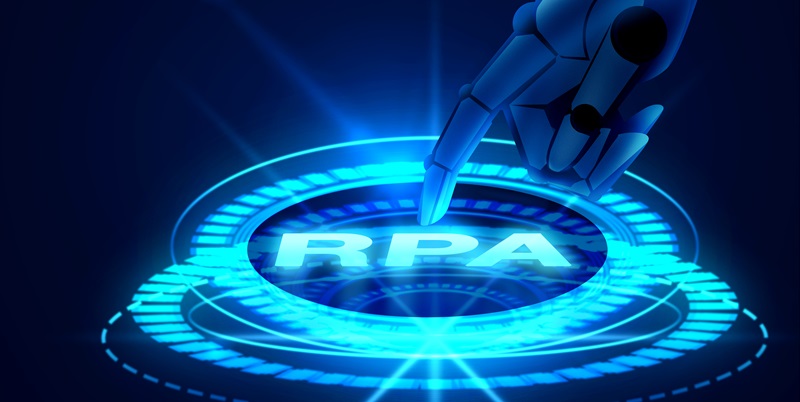In the rapidly evolving world of technology, businesses are constantly seeking innovative ways to streamline operations and enhance efficiency. A thought-provoking scenario faced by many is how to effectively integrate new technologies without causing significant disruption. The convergence of Artificial Intelligence (AI) and Robotic Process Automation (RPA) offers a compelling solution to this challenge. By combining these technologies, companies can navigate the complexities of unstructured data and dynamic environments with greater precision.
Integrating AI and RPA: Enhancing Automation
Overcoming Traditional System Limitations
Pravin Kumar Raja Mahendran, a seasoned industry expert with over 16 years of experience, emphasizes the importance of integrating AI with RPA to transcend the limitations of traditional systems. In the banking sector, for instance, legacy systems often pose significant challenges. Rather than implementing blanket changes, a more effective approach involves devising tailored solutions that account for the specific intricacies of existing systems. This strategy minimizes disruption and optimizes operations.
Natural language processing (NLP), image recognition, and predictive analytics are some of the AI-driven capabilities that enhance RPA, enabling automation systems to handle dynamic and unstructured data with greater efficacy. For instance, in customer service, intelligent bots equipped with NLP can comprehend and respond to customer queries more accurately. Similarly, in finance, AI-powered RPA can analyze vast amounts of transaction data, flag anomalies, and initiate corrective actions autonomously, thereby reducing the risk of fraud and errors.
The Role of Hyper-Automation and Advanced AI Integration
Continuous learning and adaptability are crucial for staying abreast of technological advancements. Raja Mahendran predicts that future trends will see the rise of hyper-automation, where advanced AI integration plays a pivotal role. Hyper-automation refers to automating almost any process that can be replicated by a machine, thereby significantly reducing human intervention. In such a landscape, blockchain technology could also become integral, offering secure workflows and enhancing the reliability of automation processes.
The emergence of Centers of Excellence (CoE) represents another significant trend. These centers aim to promote the seamless collaboration between RPA and AI, fostering an environment where intelligent automation can thrive. By creating dedicated teams to focus on the integration and deployment of AI-driven RPA solutions, organizations can ensure that their automation strategies are both innovative and robust. CoEs can provide the necessary support and expertise to refine processes continuously, driving efficiency and ensuring sustainable growth.
Metrics for Success in AI-Enhanced RPA
Beyond Traditional Parameters: Adaptability and Scalability
Evaluating the success of AI-enhanced RPA solutions requires a shift from traditional metrics like cost savings and process efficiency to more comprehensive ones. Adaptability and scalability become essential benchmarks in this context. As businesses grow and evolve, their automation solutions must be capable of scaling seamlessly to handle increased volumes of data and more complex workflows. AI facilitates this by enabling real-time decision-making and predictive maintenance, ensuring optimal performance.
In warehousing, for example, predictive models powered by AI can optimize inventory management by forecasting demand and adjusting stock levels accordingly. Intelligent bots can take on dynamic scheduling tasks, ensuring that resources are allocated efficiently and downtime is minimized. This level of precision not only streamlines operations but also enhances customer satisfaction by ensuring timely deliveries and reducing delays.
Leveraging Rich Insights for Improved Accuracy
Linking RPA with AI unlocks unparalleled efficiency and accuracy by harnessing rich insights from data. For instance, in healthcare, AI-driven RPA can process patient records swiftly, ensuring that critical information is available to healthcare providers in real-time. This significantly reduces the administrative burden on medical staff, allowing them to focus more on patient care. In retail, AI algorithms can analyze purchasing patterns to forecast trends and personalize customer experiences, driving sales and building brand loyalty.
Raja Mahendran’s vision underscores the transformative potential of AI-enhanced RPA, emphasizing the importance of staying innovative and adaptable. His career serves as a testament to the value of blending technical expertise with strategic foresight. For newcomers in the field, continuous learning remains imperative. By embracing change and committing to ongoing education, professionals can stay ahead in the rapidly evolving tech landscape, contributing to the next wave of automation technologies.
The Future Landscape of Intelligent Automation
Personalized Integration Strategies and Continuous Learning
The infusion of AI into RPA is not merely about adopting new tools; it’s about developing personalized integration strategies that align with an organization’s specific needs and existing infrastructure. This approach ensures a smoother transition and maximizes the benefits of automation. Tailored solutions address the unique challenges and opportunities within each sector, driving efficiency and transformative growth across various industries.
The emphasis on continuous learning highlights the broader implications of technology. Teams must be encouraged to embrace a culture of innovation, where learning and development are integral to the workflow. This culture fosters resilience and equips organizations to navigate future challenges effectively. Training programs and upskilling initiatives enable employees to stay updated with the latest technologies, ensuring that they can leverage AI and RPA to their full potential.
Strategizing for Operational Efficiency and Growth
In the ever-changing landscape of technology, businesses continuously strive for innovative approaches to streamline their operations and boost efficiency. One critical challenge they face is integrating new technologies without causing major disruptions. The fusion of Artificial Intelligence (AI) and Robotic Process Automation (RPA) presents a strategic solution to this dilemma. By leveraging the strengths of both AI and RPA, companies can adeptly manage unstructured data and navigate dynamic environments with enhanced accuracy and effectiveness. This convergence allows businesses to automate routine tasks while simultaneously making smarter decisions based on real-time data. Consequently, the adoption of these technologies can lead to significant improvements in productivity, cost reduction, and operational agility. Furthermore, AI and RPA together can free up valuable human resources, enabling employees to focus on more strategic, higher-value activities. This evolving synergy between AI and RPA not only promises to minimize disruptions but also empowers businesses to stay competitive in the fast-paced technological arena.

